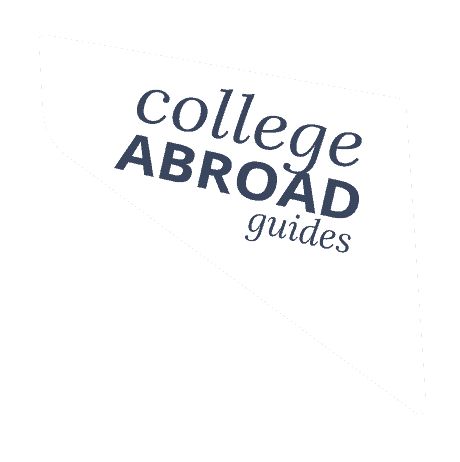Get a Well-Balanced Education at University College Venlo

- Originally published
- Last updated on July 24th, 2023 at 12:56 am
Table of Contents
Nutrition nerds will find plenty to celebrate in a liberal arts and sciences program that doesn’t tie them to a single discipline but lets them nibble across the spectrum of food, nutrition, and agriculture.
University College Venlo is a small-scale program that can help students navigate a future career that combines nutrition with other fields and interests.
Basics
Associated with: University of Maastricht
Degrees: BA, BSc
Majors: Health, Nutrition, Business
Concentrations: Social Sciences, life sciences, or a combination
Location: Venlo, Limburg
English: Yes, the entire program
Cost for out-of-European Economic Area (EEA): €10,900 + €2143 statutory fee
On-campus housing cost: €550 for a bigger studio with no rent allowance
FAFSA funds: Yes
Student body: There is a yearly intake of ~75 students, which are approx. 20% Dutch, 60%-70% EU, and 10%-20% out-of-EU.
Abroad from abroad: Venlo has few partnerships with universities abroad. They encourage students to email if they’d like to inquire about spending a semester abroad to plan with a student independently arranging an exchange.
Student body: ~125 total students, 40% Dutch, 50% EU, 10% Non-EU with a very international feel and a total of less than 300 students
Five adjectives: nurturing, collaborative, helpful, intimate, healthy
Is University College Venlo Good?
Once ranked #2 among the Netherlands’ 11 university colleges, UCV is a heavy hitter that can capitalize on the formidable reputation of its parent university, the University of Masstricht.
Maastricht ranks #186 globally. It’s a standout in fields like medical science and comes in a healthy #217 for agricultural science, which can only solidify the reputation of its honors college centered on food and nutrition.
Students who want to get ahead in an area best known for its rural character, and in a field where innovation comes out of that farmland, head to Venlo.
Agricultural Venlo
Venlo is an agrifoods hotspot and junction on the global supply chain, which is how this program landed in this ancient, tiny town on the German border, 28 miles from Düsseldorf and 43 miles north of its parent university in Maastricht.
Although students are part of a tiny university college cohort, there are two applied science universities in Venlo, making the student population more robust than UC Venlo could muster on its own and giving students more options for hangout spots around town.
“I love the place. I love the buildings. I love the people. I could see myself coming back to live in the Netherlands someday after living here.”
Venlo itself has a distinctly authentic feel where all its students are part of the town but not its focus. “It’s not a student town,” says one current international student. “If you like going out, partying, meeting a lot of different people, having a lot of opportunities, and a lot of choices of where to go, it’s not for you. Within a couple of months, you’ll basically know everything here.”
Yet its small scale is perfect for many students looking to hit the books in this healthy corner of the Netherlands.
Student Hotspots in Venlo
Start learning about your new haunt when you leave the train station and spot the Limburgs Museum. It’s a good spot to figure out how the Maas River has both nourished and devastated inhabitants with its floods or what medieval castle life was like in this neck of the woods.
Take a break at De Klep beer bar next to a former monastery. It boasts nearly 100 world beers to taste, from Trappist local beer to fruit and root varieties, all in a warm, wood-paneled hideaway with a spacious patio on sunny days.
You’ll also notice that Venlo’s downtown core is populated with shops that cater to all kinds of folks. International students will appreciate the foreign snack foods and imports from across Europe, like those in the Polish shop or the Irish pub.
“University College Venlo and the city of Venlo offer a small-scale but unique college and living experience. It’s for people who are interested in health and simple things like riding your bike around town, seeing a movie, playing cards with friends, having a picnic, going to bars, and just enjoying life.”
Students can also hit the Saturday market for produce in the town square, and in a pedestrian downtown that mirrors many other Dutch cities: it’s car-free, bike-friendly, safe, and green.
Go shopping nearby in the Maasboulevard quarter, where you’ll find a mix of international chain stores and local boutiques. In the summer, a food truck festival with DJs and dancing that brings the best impulses of Venlo’s small-town community together.
If you’d rather keep up with the club scene, check out John Doe, where you can dance the night away. Hit up upcoming shows at Grenswerk, the concert venue. By the time spring rolls around, you could find yourself in the middle of a festival.
“If you have good company, then it’s a great place to live.”
Studying on Campus Venlo
The light and open “Campus Venlo” building of the University of Maastricht houses the University College, but also master’s programs in global supply chain management and health food innovation management.
Classrooms are all housed in the renovated building. There are student study rooms full of couches and tables, a 100-person lecture hall, and tutorial classrooms. The red brick building occupies a sleepy corner on the edges of the city center where you’re only a couple of blocks from coffee or a terrace lunch.
“We meet a lot of people here. We have people from South Korea, Indonesia, Belgium, Spain, Ireland, France, the U.S., and Kenya. If you’re open to new experiences you’re going to gain a lot of knowledge and broaden your horizons.”
Student Accommodation on Campus and Off
On-campus furnished studios for 28 students are available in the new academic building, and applying as soon as you have a conditional offer is advised.
Because student housing is unavailable for all, private agencies catering to international students abound.
There are student housing options for students from all the area universities, and social media groups can help students find a place. The housing crunch is not as rough as in other towns, and many students are happy to live with friends they had made from the program in a Dutch “studentenhuis” (house rented with other students) or on their own in single apartments.
UCV itself welcomed its inaugural class in 2015, and the student association emerged in 2018 to help plan activities to bring students together with board game nights, jam sessions, movies, dinners, and workouts.
The student organization, BEET, now hosts events like pizza in the park, where students can register their orders and then meet to listen to music, talk, and eat.
Ultimately, students find friends quickly in the small program but are hungry for even more activities.
While the program is ~53% international, “Dutchies mostly hang out with other Dutchies,” says one international student who says he has made many friends, 99% of whom were international, in the close-knit environment.
Academics for Flexible Food Lovers
Venlo offers a specific nutritional and food sciences focus, albeit from an interdisciplinary perspective.
In fact, most students at UCV talked about coming to Venlo specifically because they could focus on a broader range of interests in addition to nutrition.
“Mostly I liked the fact that students can choose their curriculum and combine different disciplines. For example, you can study nutrition alongside food science/food innovation. You can also combine it with psychology or public health.”
Once here, four core courses are required in nutrition and business: Modeling Nature, Philosophy of Science, Globalization: World Politics and Economics, and World Orientation: An Introduction to Cultural Studies.
Much of the rest of the curriculum is elective, but students will need to amass a number of skills-based and project-based classes. They can choose to specialize in life sciences or social sciences depending on their personal interests and approach. Science students can choose classes like “Data mining,” “Gut microbiology,” “Biochemistry,” and “Clinical nutrition.” Social sciences students might prefer “European food law,” “Psychology of eating,” “Supply chain management,” or “Entrepreneurship.”
At the end of all that coursework, there’s a capstone thesis.
A Snack-Sized Period System
One aspect of the program that students would urge future applicants to consider carefully is the scheduling in which semesters are divided into three “periods”: periods one and two include two 6-week courses (week 7 is exam and paper week, and week 8 is for reflection and planning for the next period) and a “skill” which is a class on an academic norm like academic writing, preparing for a conference, risk communication, working in a lab in biochemistry, etc.
The third period is for a longer project and lasts 4 weeks. In classes, professors hold lectures twice a week, and students also meet in smaller, problem-based tutorial groups to discuss problems, consider solutions, and expand on lecture material. Skills courses meet weekly (for labs or academic skills practice).
“The 6-week periods are not suited for everyone,” says one student who found it took nearly that long to figure out how to study for each class, but then found it was too late to course correct. The student also warned that falling behind in tutoring sessions means there is little time to keep up, and it is easy to get overwhelmed with new work and readings.
“The atmosphere is very cozy because of the campus being quite small-scale. The tutors and professors know your name and are really interested in your academic success.”
Problem-Based Learning in a Small-Scale Environment
Problem-based learning (PBL) is another cornerstone of the academic system at Venlo, which caters to students who like to learn by discussion and collaboration.
Many students adore the approach, which focuses on a core problem and then considers how to solve it from multiple disciplinary perspectives. Ultimately, attending a virtual session and getting familiar with the teaching technique can help students sort out this unfamiliar approach before committing to it.
“Since UCV is so small-scale, you feel close to the teachers. You feel like they know you pay attention to your individual needs.”
Unique Aspects of University College Venlo Academics
The difference may be in the freedom to make your own specialization or choose none at all.
You can focus on one area, like nutrition or business, and graduate with a unique liberal arts approach to the subject. But one student warns that students who pick many things will have broad knowledge about plenty of subjects without being able to say they really studied anything in depth.
This is common in the program and has some advantages, according to one current Dutch student who says exploring many courses leads to discovering things you love and changing direction. “That’s a good thing,” she says.
““Because the classes are mixed with students from all years, it’s possible to benefit from higher-year students’ knowledge about how to handle the workload, different kinds of tasks, etc.”
In the end, tutors can help, but they ultimately trust students to direct their own learning. “You should know you’re not specializing in anything,” one current international student says. “If you get the question, ‘What are you studying?’ you won’t be able to say, ‘I’m studying law. I’m studying medicine. I’m studying business.’”
This means that liberal arts students should think ahead about their future master’s plans while exploring the freedom this type of program gives.
Applying
IB Students, or American students with a diploma and 3 AP Exams with a score of 3 or higher qualify to apply. SAT and ACT scores, or a year of college coursework, can make up for diploma questions.
There is a selective admissions process, and only some students with the qualifications will be invited to an interview.
Applicants will need to include a letter of motivation.
UCV has two annual admissions periods for September and February, with application deadlines of June 1 for fall and November 1 for spring, with rolling admissions open almost a full year in advance.
Explore More University Colleges
Not sure Venlo is for you? Try other university colleges in the Netherlands, like University College Tilburg or University College Groningen. You can also get a feel for residential and programmatic differences between university colleges since not all liberal arts programs are created equally.
Related Posts

Jessica Share
Jessica is the writer, Ph.D., and mom-of-an-abroad-student-in-the-UK at the helm of College Abroad Guides. When she's not asking college students where the coolest place to hang out in their city is, she's figuring out how she can make $60 imported Greek oregano potato chips and £50 British bacon potato chips appear on her doorstep for the cost of a local bag of Lay's.





